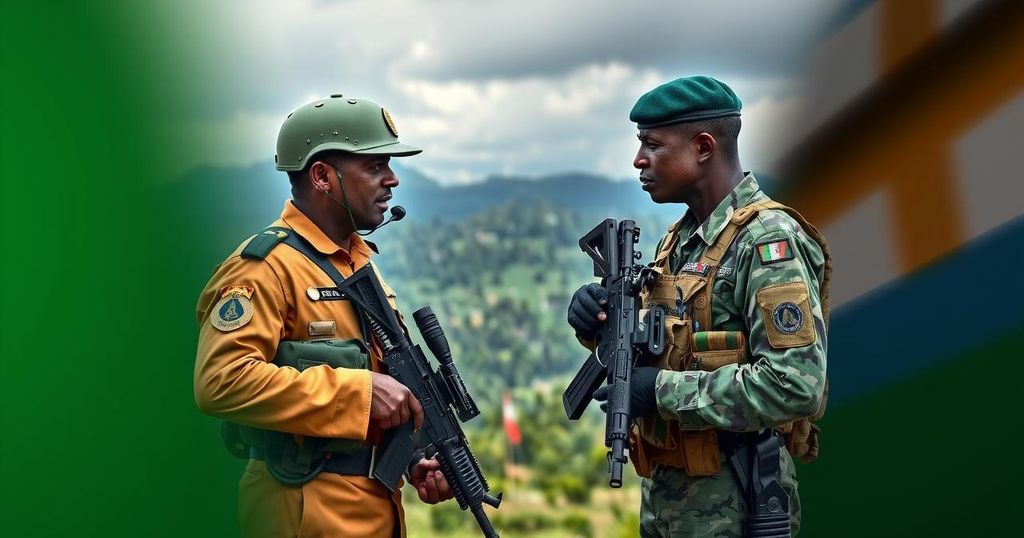The Ugandan and Rwandan armies are enhancing their collaboration by resolving cross-border security matters through direct communication, significantly improving bilateral relations after past tensions. The recent Proximity Commanders meeting emphasized swift issue resolution, community awareness on illicit activities, and establishing strategies to foster cooperation.
The armies of Uganda and Rwanda are effectively addressing cross-border security issues via direct communication methods, including phone calls and personal meetings between field commanders. This significant improvement was noted at the recent third Proximity Commanders meeting held in Musanze, Rwanda. Major General Vincent Nyakarundi, the Chief of Staff of the Rwanda Defence Force, highlighted the enhanced efficiency in resolving border disputes compared to the previous lengthy procedures which involved diplomatic channels.
Lieutenant General Kayanja Muhanga, Commander of the Uganda People’s Defence Force Land Forces, remarked on the beneficial impact these meetings have on fostering better bilateral relations between the two militaries. He stated that these interactions have led to improved coordination and cooperative efforts in swiftly resolving issues. The progress made represents a vital turning point in reinforcing diplomatic ties that had previously been strained.
The relationship between Uganda and Rwanda experienced tensions due to mutual accusations of espionage and economic sabotage. However, recent diplomatic initiatives, including a visit by Chief of Defence Forces General Muhoozi Kainerugaba to Rwanda, aimed to mend these ties with President Paul Kagame’s assistance. As a result, the Musanze meeting produced strategies designed to prevent negative influences affecting border communities.
Moreover, the conference emphasized the necessity of raising awareness and sensitivity among border communities to combat illicit activities, including drug trafficking and human smuggling. Participants also partook in visits to significant historical landmarks, such as the Kigali Genocide Memorial and the Campaign Against Genocide Museum, aimed at providing context on the 1994 Genocide against the Tutsi, which claimed over one million lives, and the subsequent efforts to rebuild the nation.
The Ugandan and Rwandan armies have established a framework for addressing cross-border security issues that traditionally required longer diplomatic processes. The third Proximity Commanders meeting in Musanze marks a pivotal moment in their relationship, allowing for quicker responses to security challenges through direct communication. This development not only boosts operational efficacy but also signifies a renewed commitment to fostering cooperative engagements amidst past tensions.
In conclusion, the recent initiatives by the Uganda and Rwanda military commanders to utilize direct communication to resolve cross-border issues represent a significant advancement in their bilateral relations. The collaboration is set to not only enhance security for border communities but also manifest the commitment to rebuilding trust following a period of strained relations. By addressing illicit activities and promoting awareness, both nations aim to ensure stability at their shared borders, setting a positive precedent for future interactions.
Original Source: chimpreports.com






